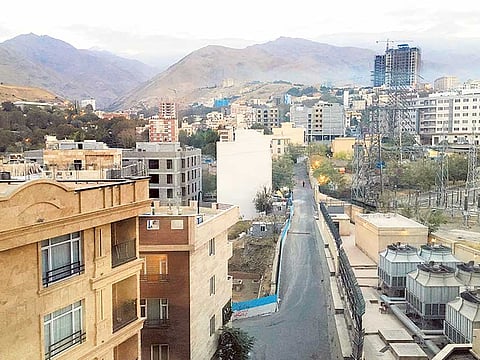Iran mulls new investment rules in push to boost clean energy
The proposed reforms are also aimed at attracting foreign investment to other areas of Iran’s economy

Tehran: Iran, which gets most of its electricity from natural gas, is considering new rules that may entice foreign investors to raise the amount of clean energy generated on its grid.
The government is reviewing regulations to streamline and accelerate the process “for investors to bring funds inside the country and repatriate the profits,” presidential adviser Elham Aminzadeh said in an interview at a conference on renewable energy investment.
Though known best for its oil and gas resources, Iran has immense renewable energy potential, according to Bloomberg New Energy Finance. The Islamic republic also stands to benefit from the lifting of nuclear sanctions and government incentives known as feed-in-tariffs designed to attract investment in renewables.
Iran’s legal framework can allow “for foreign investment entering through the correct channel and for profits arising from that investment to be protected and have foreign investors benefit from the same rights and exemptions as domestic ones,” Aminzadeh said in her speech opening the conference on Sunday.
Proposed reforms
The proposed reforms, which are also aimed at attracting foreign investment to other areas of Iran’s economy, will be submitted to parliament for approval, she said without specifying a timeline.
In the next decade, as much as 10 per cent of Iran’s energy needs must come from renewable sources, including solar and wind, according to Aminzadeh. Iran has close to 150 megawatts of clean power plants in operation, with an aim to install 5 gigawatts in the next five years and an additional 2.5 gigawatts by 2030, authorities have said.
Iranian officials are looking to reap the benefits of a nuclear deal with world powers last year by attracting foreign investment and technological know-how to a country of 80 million that was kept isolated by a decade of international sanctions.
The energy ministry said in July that it’s planning the first tender for utility-scale renewable-energy projects by the end of the year as Iran begins a green power buildout that could draw $12 billion (Dh44 billion) of investment by the time it’s complete.
While the Gulf country is being courted by green power investors, some of the companies at this week’s conference said business deals are being delayed by a reluctance on the part of major banks to resume business with Iran and to provide trade financing.
Clean energy potential
Iran’s production of clean energy is far below its potential, especially in solar and wind power, said Kourosh Shoori, secretary general of the Iranian Solar Energy Scientific Society, which works closely with power authorities.
Talk of clean energy’s potential has “taken vigour” inside Iran, with the sector attracting interest from foreign companies including those from Italy, Germany and Turkey, Shoori said in an interview.
“Preliminary steps have been taken, pilot projects have been carried out but the issue is financial,” Shoori said. “There is a need for preliminary financing. It’s difficult to meet domestically and requires foreign investment.”
Major European banks have kept their distance even after the lifting in January of restrictions on a messaging system used by almost 11,000 institutions for money transfers. While some smaller banks are working with Iran, progress with foreign banks has been “slow”, according to Iran’s Central Bank governor, Valiollah Seif.
“There are some projects, but most of them have a lack of financing,” said Matthias Schnurrer, executive director for the Middle East at Fichtner Group, a Stuttgart-based engineering and consulting company. “At the moment we are not yet at the stage where the financing requirements of international lenders are synchronised with the expectation of the Iranian government.”
Regulatory environment
Cautiousness on the part of banks affects the readiness of companies to invest, said Richard Parris, a partner at London-based law firm Clifford Chance.
“A number of developers are waiting to see what banks will be available to invest in Iran,” he said.
Iran’s regulatory environment is another challenge, Parris said.
“The framework is rather opaque at times,” he said. “It’s not easy to get a full and clear picture of the rules and regulations that may relate to your project.”
Years of operating under sanctions has also pushed Iran toward factories in China and the competitive pricing of its products, which can make it more difficult for Western and European countries to negotiates deals.
While in Europe the quality is incomparable “prices are much higher, the cost of manpower, the licensing,” can make it challenging to compete with cheaper Chinese products, said Marco Lajoso, business development manager for the Middle East with Portugal’s Efacec.
Sign up for the Daily Briefing
Get the latest news and updates straight to your inbox



